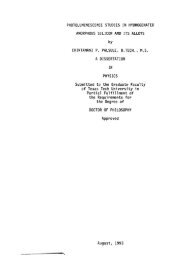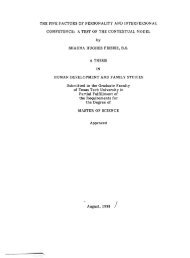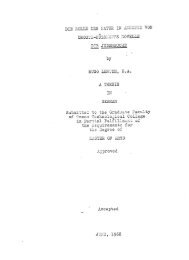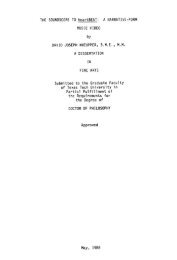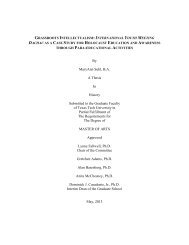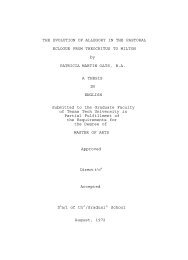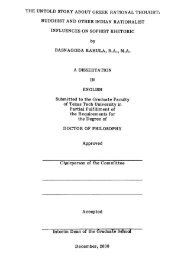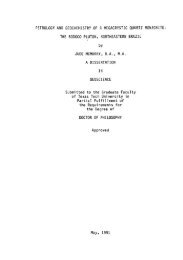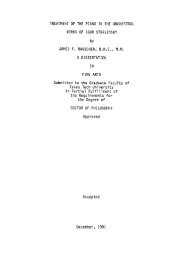Chandra Prakash Bhongir, Civil Engr, May04 - Repositories
Chandra Prakash Bhongir, Civil Engr, May04 - Repositories
Chandra Prakash Bhongir, Civil Engr, May04 - Repositories
You also want an ePaper? Increase the reach of your titles
YUMPU automatically turns print PDFs into web optimized ePapers that Google loves.
vicariously to the homeland. 6 This definition is very useful in the study of the Albanian<br />
Diaspora in Southern Italy because the Arberesh of Italy are an Albanian community who<br />
left Albania after the death of Scanderbeg, they continue to maintain their culture and<br />
Albanian language, and are committed to the restoration of their homeland. Borders have<br />
always defined the relationship between Diaspora and the nation-state. However if<br />
nations are real yet imagined entities, the border itself also becomes an imagined entity.<br />
Benedict Anderson’s work on nationhood fits well with the trends exhibited in Albania<br />
and the struggle for Albanian independence on the part of the Albanian Diaspora.<br />
In the modern world, ideas of national economy, become useless, since modern<br />
nations are moving toward globalism and global economies. The classic Wilsonian-<br />
Leninist form based on the slogan for self-determination is outdated and offers no<br />
platform for the twenty-first century. In this construct Diaspora no longer occupies a<br />
peripheral space, instead it becomes the hybrid which embodies the Other. This third<br />
space to use Khachig Tololyan, definition is a “land, a territory , a place that functions as<br />
the site of homogeneity, equilibrium,[and] integration.” 7 As such Diaspora becomes the<br />
center, the place where discourse flourishes; and the exchange of ideas sets the frame for<br />
political and social change in the homeland. The role then of the diasporic intellectual<br />
becomes defined, first in relation to the place of origin and second to the place of<br />
domicile. In the first case it is a question of a consciousness that resists the “submission<br />
to consaguinity,” that is demanded by nationalists, and instead inhabits the borders<br />
6 My definition of diaspora is closely aligned with William Safran’s work in diasporic<br />
communities as developed in William Safran, “Diasporas in Modern Societies: Myths of Homeland and<br />
Return,” in Diaspora 1 (1991): 87.<br />
7 Khachig Tololyan, “The Nation-State and Its Others, In Lieu of a Preface,” in Geoff Eley and<br />
Ronald Grigor Suny eds., Becoming National, A Reader, (New York: Oxford University Press, 1996):429.<br />
33



